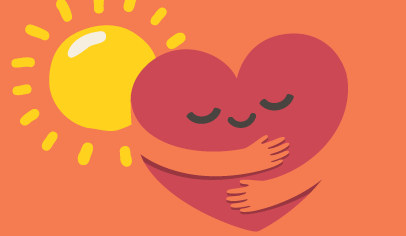According to a study done by the Anxiety and Depression Association of America, 34 percent of college students have felt depressed in the last three months, 13 percent have been diagnosed with an anxiety disorder and 9 percent have seriously considered suicide in the past year.
You may be thinking these numbers are infinitesimal in the big picture, but what if one of your loved ones is currently part of this demographic? What if every night, someone you care about is crying him or herself to sleep, just to wake up and blame the puffy eyes on exhaustion? Imagine your best friend constantly struggling to keep the inevitable panic attacks at bay in an attempt to feel in control. Imagine a close family member of yours wondering who would miss him or her in the event of his or her death. And all the while, no matter how many people actually do love them, they still feel completely and utterly alone most of the time. Suddenly, those numbers don’t mean anything, and all you want is for these people you love to feel better.
There is no way for you to personally cure someone who suffers from depression or an anxiety disorder, and that is important to remember. Regardless, there are ways for you to ease your loved one’s pain, but first, you have to learn about the kind of friend they need and want you to be.
As someone who’s suffered with depression and anxiety for a good chunk of her life, I can say there are definitely things friends can do to make me feel more like myself. Of course, I’m not an expert, but here are a few things to keep in mind:
Depression =/= Sadness and Anxiety =/= Stress
Depression is “a brain disorder characterized by persistently depressed mood or loss of interest in activities, causing significant impairment in daily life.” When a friend of yours is depressed, it can be easy to inadvertently undermine their feelings. For example, “I totally understand; I get sad sometimes too” is not going to make your friend feel better because when it comes down to it, sadness is a fleeting emotion and depression is nothing short of an illness. Similarly, the same goes for stress; it is not the same as anxiety. Anxiety is a disorder that causes so much distress, it interferes with your ability to lead a normal life. It’s common for students to carelessly say, “This exam is giving me anxiety,” but is it really? Or do you just feel stressed? Depression and anxiety are disorders. They are serious mental health conditions and they shouldn’t be treated lightly.
Understand that the feelings of helplessness, desperation, isolation and neglect that your friend deals with do not simply come and go—these disorders stick to you, and believe it or not, even after battling it and seemingly winning, the chance of relapse is big (anywhere from 50 to 90 percent depending on severity, to be exact). These are not temporary illnesses.
Learn to be a compassionate listener
Advice is great, but sometimes, it’s the last thing someone needs in times of distress, and this is especially true for people dealing with depression and/or anxiety. Most of the time, they just need a friend to listen and really try to get what they’re going through and where they’re coming from. Interrupting with your own experiences and advice isn’t always helpful, especially when chances are, you are not qualified to be giving someone with depression and/or anxiety advice anyway.
Do not treat positivity like it’s the save-all for everything bad that’s ever happened.
More often than not, anger, sadness, irritation and frustration are much easier to access than happiness for those dealing with depression and/or anxiety. So when people say “Just look at the bright side,” “Things are going to get better” or my personal favorite, “Be happy; someone has it way worse than you do,” it does little in helping your loved one feel good. Force feeding someone positivity is going to do very little in actually making them think positively.
Understand that these things can be severely crippling.
Depression and anxiety can affect your physical health just as devastatingly as your mental health. There are days when it’s a brutal battle just deciding to open your eyes and be awake, let alone deciding to get out of bed and face the world. In fact, a study by Gallup shows that those suffering from depression in the U.S. missed twice as many days of work each year compared to their counterparts who have never suffered from depression.
Knowing this, you can imagine why your friend may not want to go see that new movie with you or hang out at your favorite food joint. It’s easy to label them a “flake,” but it’s crucial to understand that even though they sometimes stifle their disorder and mask it with happiness, other times, it’s easier to feel the extent of their depression and anxiety alone instead of having to explain to others why they’re not OK. Your friend isn’t a “killjoy,” a “grandma” or “grandpa,” “boring” or again, a “flake.” They are warriors and they are fighting.
Last of all, know the signs.
Depression and anxiety are very serious conditions and they should be treated as such. Like any other disease or illness, lack of treatment for these disorders can very likely lead to death, and you should know the signs if a friend or loved one of yours is dealing with this. Here are just a few from everydayhealth.com:
- Difficulty sleeping or sleeping more than usual.
- Changes in appetite.
- Withdrawal from social interaction.
- Loss of interest in things that used to be pleasurable.
- Lack of energy, difficulty concentrating or remembering things.
- Feeling worthless and helpless.
As previously said, depression and anxiety are easily something that a person can struggle with for the rest of their lives, but that doesn’t mean they can’t receive help. If you or someone you know is suffering from either, know that there are resources. On campus, Student Health and Counseling Services (SHCS) offers therapy sessions, workshops, referrals and more. These services are included in your mandatory health fee each quarter, so they should be utilized if needed.
It’s easy to catch yourself thinking about how hard it is to navigate around and help someone struggling with their mental health, but try to keep in mind how much harder it must be for them. There are so many things you can do to be a good friend that go beyond this measly list, but know that the best thing you can do for a loved one is just that: love them.
For more pieces on health, beauty, lifestyle, sports, opinion and more, follow ASI on Facebook, Twitter, Instagram and Snapchat.
To contact a professional counselor on campus, call SHCS at (909) 869-3220, visit the counseling office in Bldg. 66-116 or email SHCS at caps@cpp.edu.
—
All illustrations created by me.



